POSITION STATEMENT – September 20, 2023 AFA Critique of New ARA Legislation
To: Members of the Repossession Industry
Re: A Critique of Legislation Proposed by American Recovery Association Members
Dear Industry Members,
Allied Finance Adjusters has been asked by its members to review and critique a “template” being floated in the industry and to state associations by some of American Recovery Association members. Members of Allied know that the only concern of the all-volunteer leaders of Allied is the health and well-being of its members and their businesses, and so have asked for Allied to publicize its input on the position the members will be placed into should they support this specific piece of legislation to be considered for making new law in their states.
Allied has reviewed—and had reviewed by professionals—the “template” that appears to be used for this proposed legislation. Clearly, this proposal was first used in Illinois where, without notice to, or input by, a majority of Illinois repossession business owners, it was fast-tracked into consideration by the Illinois legislature which passed the template into law, making it a part of the already standing licensing of repossessors in that state. Allied has been assured by members of the Illinois legislature that they made no changes to the substance of the wording they received from the proponent of the legislation that provided it to the sponsor in the legislature.
It is the position of Allied Finance Adjusters Conference, Inc., that the additions to the Illinios Recovery Act and the proposed legislation included in the “template” being circulated to state associations and others, is a very bad piece of legislation that should not be enacted, passed or enforced by any state government. It should not be supported by members of the repossession industry because of the problems, issues and expense it will generate and because it provides for no increase in remuneration while requiring an enormous increase in responsibility and liability for the repossession businesses it will cover.
For those who have not seen the proposed legislation to which this statement refers, you may visit the following website to see a copy of Public Act 103-0371, which is a result of SB0800, enrolled: https://www.ilga.gov/legislation/publicacts/fulltext.asp?Name=103-0371&GA=103 . This is the new Collateral Recovery Act of Illinois, as changed by the proposed legislation. On the website, language that has been removed from the Act is lined-through and language that has been added is underlined. Ergo, the underlined portions of this document make up most of the “template” for the legislation being proposed in states besides Illinois.
Over-Arching Issues
Initially, there are two over-arching issues that create genuine problems for professional self-help repossession businesses built into this legislation: establishing state licensure of lawful repossession businesses(1); and designating repossession as a danger to public welfare(2)
.
(1)The “template” says, “The Legislature recognizes that untrained persons, unlicensed persons, or businesses, or persons who do not adhere to the laws of the State engaged in the collateral recovery industry is a threat to the welfare of the public…”. (emphasis added) The Illinois law already contained language that said, “collateral recovery practices affect public health, safety and welfare,” but now includes the conclusion that repossession is a danger that needs to be regulated.
The “template” also says, “collateral subject to repossession now frequently contains hazardous materials associated with engines, batteries and charging features,” as a reason to designate repossession as a threat to the public. [Note, the legislators removed this ‘hazardous material’ language from the Illinois legislation in a floor amendment to the proposal prior to enactment.]
Each of these suppositions in the “template” is simply false.
(1&2)Untrained/Unlicensed Persons
There have been untrained businesses and persons in the repossession industry for as long as there has been a repossession industry—over a century. And while, yes, those particular repossessors might pose a hazard to the public, history has proven over and over that licensing the law-abiding business owners will, in no way, drive the fly-by-nights and lawless out of business.
Licensing only serves to put the business owners who attempt to comply out of business because of the enormous expense in money and time it takes to legally comply with the licensure and regulations. Of course, those who do not care to get trained will not care to get licensed; but they will continue to operate until the lending industry ceases to hire based on price alone and seeks out trained professionals with a willingness to pay for that professionalism.
Additionally, some legal scholars liken requiring licenses for all of a certain set of employees in a particular industry to actually requiring union membership to all employees in that field. The effect is the same.
When a business may hire only licensed personnel to a particular position required to make the business function, depending on the size of the business, if all or some of the licensed employees agree to demand a concession by management or walk off the job, management cannot afford to need to replace a large number of licensed employees all at the same time and so often must make the concession. The situation becomes very much like a union strike.
(2)Hazardous Materials.
In the same vein, has there ever been a time when repossessed motor vehicle collateral (cars) did not contain engines, batteries and charging features? Of course not. Likewise, hazardous materials have been a part of engines, batteries and charging features for decades. Yet, we have no evidence of claims or lawsuits indicating the presence of these materials made the repossession of a vehicle more (or less) dangerous to the public.
Previously, a case arose where a consumer asked the State of Texas to designate all tow trucks as haulers of hazardous materials because cars that are towed contain gasoline. This designation would require the highest level of commercial driver’s license only to operate the tow truck, would require many additional safety features to be added to the tow trucks, would make every tow truck display a hazmat placard, and be subject to state and federal hazmat regulation. The repossession organization fought the request and successfully obtained a ruling from the State of Texas that, as long as the gas cap remains closed while a vehicle is on a tow truck, there is no hazmat designation necessary. The organization is gone now, but the ruling benefits all tow operators in the state and beyond.
(2)Electric Vehicles. One could posit that the relatively new presence of lithium-ion batteries in electric vehicles is new to the motor vehicle market and does pose a risk of fire that has not heretofore been present. But that risk to the public is created by the vehicle itself and is present whether a vehicle is being repossessed or is simply sitting in a consumer’s garage. Additionally, the regulation of the lending industry has already dictated that the risks posed by this new technology should be addressed in the training of repossession businesses and their staff.
Allied began including training and education on the proper handling of electric vehicles at least 24 months ago. The towing industry has done the same. State Licensing of professional repossession businesses and/or people will not address any new risk in dealing with electronic vehicles that the industry is not already addressing by virtue of free enterprise. In fact, each state that already has licensure in effect for repossessors simply requires education as dictated by industry standards and/or best practices.
These over-arching issues are important because when government entities begin designating certain activities to be licensed or to be viewed as a risk or danger to public health, safety and/or welfare, there are likely to be many unintended consequences on the regulatory side of the issue.
For instance, businesses designated as a danger to public health, safety and welfare are subject to regulation by state and federal departments of Health and Human Services. Should any of those fifty-two agencies decide to install a new regulatory scheme requiring some action by the members of the industry, an entirely new set of licensure or regulations, could apply to their everyday business practices.
Being designated as a business whose activities are a risk or danger to public health, safety and welfare can also trigger additional testing and reporting requirements in a company’s Red Flags Rules (also known as the Fair Credit Reporting Act’s Identity Theft Rules) which are enforced by the Federal Trade Commission. The lowest risk set of reporting requirements has previously applied to the repossession industry, but a designation such as this could change that scenario.
Repossession businesses could also be subject to more state and federal executive orders, public health orders and public health emergency orders, as an example of unintended consequences following such a designation.
More Specific Issues
There are also several more, specific issues included in this regulatory “template” that would be less than beneficial to repossessors, or could make difficult situations even more difficult for the business owners.
Contraband. The original legislature “template” says, “If personal property is not claimed within thirty (30) days, then the licensed collateral recovery agency may dispose of the personal property at its discretion, except that illegal items or contraband shall be surrendered to a law enforcement agency, and the licensed collateral recovery agency shall retain a receipt or other proof of surrender as part of the inventory and disposal records it maintains.”
This sounds great. After all, it is what every reputable repossession business owner already tries to do?
However, there are many locations across the nation where local, state and/or federal law enforcement will refuse to take possession of some items of contraband. This proposal makes no provision for handling the contraband in that case.
So, if this proposal is in place and law enforcement refuses to take the contraband, the business owner is left in violation of this law with no recourse, and likely in violation of the state code applicable to the handling of contraband if it is returned to the consumer or if it is ‘disposed of’. That is a no-win situation for the business.
Exceptional Personal Property
Unfortunately, the “template” also includes a definition for “hazardous materials” that includes, “Batteries, motor fuel, motor oil, antifreeze, prescribed or not[1]prescribed drugs, medical waste, animals, insects or bugs, human or animal waste, cleansers, insecticides, herbicides, ammunition, paint, lighter fluid, light bulbs, tires, or any other material, electronic car batteries or related components…”. This definition makes no distinction between car batteries and flashlight or remote-control batteries. It makes no distinction between over-the[1]counter pain relievers and illicit drugs such as cocaine or the like. Nor does it distinguish between the different handling needed for a pet dog left in a car or maggots found on rotted meat products.
The only real provision included in the proposal for dealing with these so-called “hazardous materials” is that the repossessor may charge extra for dealing with them. Is that provision really necessary? How many lenders have refused to cover this type of fee for dealing with “hazardous material” for which current law already requires special handling by certified professionals?
The Illinois Act, on the other hand, requires that, “The licensed repossession agency shall hold all personal effects and other property not covered by a security agreement until the licensed repossession agency either returns the personal effects and other property to the debtor or disposes of the other personal effects and other property in accordance with this Section.”
Again, there is no provision for dealing with exceptions that must be handled immediately, such as perishable items, contraband or truly hazardous materials. Before the Illinois licensing legislation went into effect, the repossessor was free to deal with these types of items in a logical and reasonable way, document the same, and not worry about violating a law that fails to provide proper exceptions.
“Regular” Personal Property
Some states already have very specific provisions in their law about how personal effects found in, on or about a repossessed vehicle must be handled, and whether that property is an accession or an accessory. The proposed legislation here requires that a notice regarding personal effects be sent by the repossessor via certified mail.
Several of the already[1]licensed states have already discovered that certified mail takes too long and is too expensive. With the current cost to send a letter by certified mail at approximately $10.00, a huge portion of any extra fee the business is paid for handling the personal effects is immediately eliminated.
Additionally, the proposal requires the notice to be sent, but does not designate where it must be sent. If the address given on the loan documents is different from the address where the vehicle was located for repossession, which address is to be used for the notice?
The proposal also allows for personal effects be “disposed of” after thirty days (forty-five days in the Illinois law) if not claimed by the owner of the property. It does provide that a receipt should be obtained for such disposal, but it does not designate how the property is to be disposed. Under the terms of the proposed legislation as-written, the repossession business could start a social media marketplace and re-sell property found in repossessed vehicles. Imagine how someone trying to replace an item of property lost because they were too slow to claim it upon repossession would feel if they find their own item being re-sold by the repossessor online? The plaintiff lawyers would love that, even if the consumers would not like it at all.
Conflict of Laws
Although the attempt by the drafter(s) of this proposed “template” to legislate the ability for repossession businesses to charge a fee to the consumer as a condition of retrieving personal effects (and storage fees) seems logical, this provision only and immediately leads to litigation of which the repossession businesses would be right in the middle. The fact is that the federal government already has ruled that withholding personal effects from a consumer until payment of a fee to regain their property is a regulatory violation.
Even if every state legislature in the country and its territories passed laws that said property could be withheld from a consumer until a fee is paid, that would not make the practice legal at the federal level. The proponents of this measure have asked for a conflict of laws to be created. Any repossession business using the state law as their guide in this regard would be immediately sued for violating the federal law—and would lose unless the federal law is changed, as well.
Business Name Restriction
The “template”, as part of the licensure scheme would disallow a licensed repossession company to be named, “…in any name that may tend to describe any business function or enterprise not actually engaged in by the applicant.” This restriction is in addition to any business name that is deceptive or misleading or suggests an affiliation with the government in any way. Unfortunately, this restriction does not leave room for anyone to use a completely fictitious name that is not deceptive, but that makes use of a double entendre or a word with multiple meanings.
Violation of State Deferred Adjudication Programs
In the scheme presented by the “template” proposal, the license application must contain, “A statement of all criminal convictions, findings of guilt, and pleas of guilty or nolo contendere, regardless of adjudication of guilt.” (emphasis added) This is problematic in that most state court programs allowing for deferred adjudication require the accused to plead guilty or nolo contendere as a condition for being allowed to participate in the program.
If the program is successfully completed, the case is dropped with no adjudication of guilt, the case is dismissed, and the accused gets a clean, fresh start. Requiring disclosure of a plea made in a case that was dismissed and is not reflected as a finding of guilt on someone’s record is, in most cases, a violation of the state law under which the deferred adjudication program is operated by the court. Many service agreements with lender/clients contain this language as well. But it is never a good idea for a state legislature to mandate a violation of state criminal laws.
No Extra Fees
Speaking of service agreements between repossession businesses and lender/clients, it is true that every service agreement for repossession services that is written includes a guarantee by the repossession business to comply with both state and federal law in the handling of accounts for the client. Since this addition to the Illinois law, and the proposed language in the “template”, make wiping the consumer’s data from the on-board computer system of the vehicle a requirement for the repossession business, the reposssor is bound by law to do it whether or not an extra fee is offered or paid by the lender/client. With this proposed legislation in place, the repossession business has been backed into a corner where it cannot refuse to provide the additional service without an additional fee.
Consumer Data in The Car
It is very clear, upon first reading the “template” and/or the additions to the Illinois Recovery Act, that the real reason behind the proposal of this legislation is to force the repossession industry to deal with consumer data in the computer system(s) of a repossessed motor vehicle. The “template” says,
“If a licensed repossession agency has cause to believe collateral stores personal information, then within 14 days of the repossession of the collateral and prior to the release of the collateral from the possession of the licensed repossession agency, the licensed repossession agency shall clear, erase, delete, or otherwise eliminate the personal information collected or stored in or by the vehicle, or reasonably in good faith attempt to do so, by utilizing a standardized electronic solution that has been approved by the American Recovery Association or by the Commission through administrative rule. If a licensed repossession agency fulfills the requirements of this Subsection (H), it shall not be liable to any party or the Commission relative to any claim, complaint, or action regarding or alleging loss or breach of personal information associated with collateral.
The problems this proposed provision and its attendant requirements create for the repossession business are almost too many to list. Not only will this section create a huge new field for litigation (ways lawyers will figure out how to sue repossession companies), but it requires an enormous new obligation while circumventing the possibility that the repossession business can get paid for taking on that obligation.
Allied initially addressed the issue of “connected cars” and their access to consumer data in September of 2021 in the continuing education sessions at its Annual Convention, to which all members of the repossession industry were invited. Attendees of that session will already know most of what follows and have, for two years, had access to educational paperwork to provide their lender/clients about the subject of consumer data in the computer of a repossessed vehicle.
Only now, the proponents of this legislative proposal have asked lawmakers in Illinois, and want to continue to ask lawmakers in other states, to accept the contention that, “personal information” means, “information that is associated with an owner, driver, or passenger of the collateral and is collected and stored by electronic means or systems in or by the collateral during the course of its use, including but not limited to (a) biometric information, contacts, addresses, telephone numbers, garage door codes, map data, digital subscriptions, and the like; (b) information that is deemed “sensitive personal information” by the Federal Trade Commission, “personally identifiable information” under federal law or the Personal Information Protection Act, or “individually identifiable health information” under the federal Health Insurance Portability and Accountability Act; and (c) information that a licensed repossession agency reasonably believes would be deemed confidential or private by the person who is associated with the information”.
They now want the state to have the ability to, “ensure that repossession agencies protect motor vehicle collateral consumers from potential harm and loss associated with personal information that is collected and stored on motor vehicles.” (Illinois Recovery Act, new section 5(b)(ii).)
Yet, the fact remains that, while the consumer information held in the computer of vehicles may be “Non-Public Personal Information” as that term is defined by the Federal Trade Commission, in no way are the lender or the lender’s vendors (the repossessors) responsible for the handling of that “personal information” under the Gramm-Leach-Bliley Act or the regulations enacted by the FTC.
Who is Legally Responsible
In January of 2018, the FTC adopted the position that all safety[1]critical and unctional data in and about an automobile should be segregated, protected and can be consumed and analyzed by automakers and regulators without knowledge of the consumer because it is owned by the automakers and is not personally identifiable.
Since automakers have no way of knowing when a connected car is sold or otherwise transferred to a new owner or operator, they bear no responsibility for dealing with personal data in the on[1]board computer memory of the automobile. The FTC, in cooperation with the National Highway Transportation Safety Administration, determined that vehicle owners are given notice and a choice for the functions that may collect personal data and information; therefore, the consumer owns the data about themselves and is responsible to deal with the information that remains in the vehicle’s computers.
However, best practices for the automakers calls for a factory reset function inside the vehicle that allows the personal information that is not safety-critical to be removed from the computer memory. This position was confirmed in 2021 as still viable by the Alliance for Automotive Innovation. Since 2018, five years ago, almost every new car manufactured includes the factory reset function as standard technology.
Despite automakers placing the onus for data privacy and protection on the consumer, a January 2020 Report by the National Science & Technology Council and the US Department of Transportation stated that the US government would ensure the security of data and the public privacy as automated vehicles are designed and integrated. It then designated the Federal Trade Commission as, “the Nation’s principal consumer protection agency” with authority to take action against a company that makes deceptive claims about consumer data collection or use, or that has “inadequate privacy or security practices”. It noted that consumer and business education efforts are used by the FTC to protect consumers, as well as enforcement actions.
Lender and Repossession Business Not Responsible
Nowhere does any of this documentation or regulation indicate in any way that a lender may own or be responsible for any data stored in a car – NPPI or otherwise. In fact, Section 509 of the Gramm-Leach-Bliley Act makes very clear that a consumer’s information becomes the responsibility of the lender ONLY WHEN the consumer gives it to the financial institution. The information stored in the car might be some of the same information that was given to a lender for a car loan.
But the information stored in the car’s computer was not placed there by the financial institution, nor was it provided to any third party by the financial institution. It is NOT owned by, stored by or the responsibility of the lender. The personal information does not come into the hands of a repossession company directly from the lender, so the repossession company is not, as the law stands today, responsible to see that the information is removed from the vehicle’s computer before it is passed to the next party as instructed by the lender.
Automakers and the Federal Government Are Doing It
As shocking as it may seem, though, the federal government has been working, as promised in January of 2020, on solutions to the issue of dealing with personal information left on vehicle on-board computer systems. The National Highway Traffic Safety Administration issued a 2022 Update to the Cybersecurity Best Practices for the Safety of Modern Vehicles.
They conclude that the “best practice” for dealing with any software listening on an internet protocol port is to, “limit the use and access to IP ports and strengthening encryption protocols and authentication methods in any communication between external servers and the vehicle”. These are positions and tasks undertaken by the automakers who have voluntarily placed themselves under the regulation of the FTC.
In May of 2021 the National Institute of Standards and Technology (part of the US Department of Commerce) adopted and published a white paper presented by the National Cybersecurity Center of Excellence regarding Enhancing Internet Protocol-Based IoT Device and Network Security. This paper sets out the need for, and recommends the use of, using a network-layer onboarding process for connected cars that will allow provisioning of network credentials to the connected car making it much more difficult for an unauthorized device to connect to the vehicle and making a separate layer of storage and access to subsequent devices and servers that connect with the car. Since each connection to the outside will have its own layer of storage technology, the users should not be able to access others’ data or mix the data together. The NIST estimates that 40 billion IoT devices will be connected to the internet worldwide by 2025!
As of May 2023, the National Cybersecurity Center of Excellence has published their fifth and final volume of white papers explaining the Trusted Internet of Thing (IoT) Device Network Layer Onboarding and Lifecycle Management, Enhancing Internet Protocol-Based IoT Device and Network Security. The non-technical takeaway from the white papers is that they have now figured how and how best to build the network-layer onboarding process into all new vehicles.
While it should be expected to take some time for automakers to work the process into their manufacturing, it is safe to also expect that this security measure will be built into all new vehicles in the near future. Once that occurs, even the factory reset will be a redundant but not completely necessary function in the newest vehicles.
Protection From Repossession Hasn’t Been Necessary
With this technology in place relatively soon, ‘protection from repossession’ resulting in a consumer’s information or identity being compromised—or from the use of rental cars, or even the used car market—will be obsolete. But the truth is, protection of personal information on a vehicle’s computer from the repossession scenario has never been necessary.
The first luxury cars that could be somewhat personalized via their on-board computers hit the American market (and were, thus, subject to being repossessed) in 2011. By 2016, virtually every new car could be customized and collected data about both drivers and passengers. And by 2018, third-party applications could function via a vehicle’s on[1]board entertainment suite. Yet, to-date, the issue has not been a source of protracted or abundant litigation or claims to lenders. If this issue was actually the danger this proposal implies, it most certainly would not have taken the legal bar thirteen years to start filing lawsuits.
Misuse of Personal Information. Should a rogue repossession employee decide to misuse the personal information left in a repossessed vehicle by a consumer, the law already provides a penalty for that. The Stored Communications Act Title of the Electronic Communications Privacy Act of 1986 protects communications while they are stored on computers by making unauthorized sharing of stored data a federal crime. In that regard, should a repossession employee access NPPI stored on a repossessed vehicle computer, and use or share it without authorization from the consumer, that person would be guilty of a felony.
Duty to Classify Data
The “template” definition of “personal information” (quoted above), in part (c), requires a repossession agent to determine whether information should be classified as personal. This standard for classifying data is likely illegal because the FTC and the GLB Act are the designated sources for determining whether information is “personal information” needing to be protected.
The proposal and the new Illinois law, places the data classification as ‘personal’ or not, under a subjective standard when an objective standard is set out in the law. The proposed language also saddles the repossessor with the task of reviewing the data to figure out whether the owner of the data would consider it to be personal.
This seems counter-productive since it requires an outsider to access and consume the data, as well as attempt to read the mind of the person who owns the information. In contrast, if a cell phone is located in the vehicle and placed into personal property storage, may the repossession business require an employee to electronically break into the phone and review the contents to see if there is “private information” on it? Probably not, since in a murder case law enforcement must obtain a warrant before reviewing the contents of a phone,and destruction of the phone would require a court order.
Insurance Issues. Insurance companies currently doing business in the repossession industry have expressed extreme concern with insurance rates and availability if the repossession businesses are required to undertake these enormous responsibilities that have never belonged to the space previously. Making a repossession agent responsible for trying to guess whether information should be considered personal or not, or requiring the business to handle an entirely new set of consumer information, is a new liability that is extremely likely to result in fewer insurers wanting to participate in the industry or resulting in rate increases by those that do.
Destruction of Data
As pointed out previously, necessary exceptions for mandatory actions are almost always included in legislation, yet this proposed legislation includes too few of them. There are situations, though, where an exception is impossible to create. The too-early destruction of the data included in a vehicle’s on-board computer is inevitable if this proposed legislation is instituted as-written.
Every state as well as Puerto Rico have UCC provisions allowing for redemption of a repossessed vehicle up until the moment it is sold to a new owner. Very seldom does a lender or repossession business know immediately after repossession whether a vehicle will be redeemed or reinstated by the consumer. The time that information becomes available to either varies widely depending on the circumstances of every case.
The average time between repossession and the sale, if a wholesale auction method is used to sell the vehicle, is ninety days. This average is longer if the vehicle is sold at retail (even though a higher price may be obtained). If a vehicle is returned to the consumer because of reinstatement or redemption of the loan, that consumer is going to want their data that was stored in the vehicle, returned to them as well.
This proposed legislation requires the data to be wiped after only fourteen days. If the data has been wiped from the computer memory, it has been destroyed and cannot be returned to the consumer upon redemption or reinstatement.
This scenario is analogous to a scenario in which you repossess a vehicle that happens to have a laptop computer in the trunk. When you remove that computer into personal effects storage, do you open it and erase all the contents before placing it on your shelf? Or if you find a passport in the glovebox, can you keep it for two weeks and then burn it? The same sort of claims and liability will result from removing data from the on-board computer in the vehicle if the consumer gets the car back. That is a big risk.
Increased Costs to Repossession Businesses
One of the oddest provisions of the proposed legislation included in the “template” we are discussing is the requirement that every repossession business in the state would have to utilize “a standardized electronic solution that has been approved by the American Recovery Association…” First, nowhere in the proposal is “a standardized electronic solution” defined or identified.
The only company currently advertising “a standardized electronic solution” to removing data from a vehicle’s entertainment suite is Privacy4Cars. Does the definition include a factory reset function on a vehicle?
Second, the use of a factory reset function, which is in almost every car manufactured since 2018, costs nothing. Since there is an option that costs nothing, why is it not specifically included as available under the proposed regulation?
The Privacy4Cars solution is not available at no cost to repossession businesses. Why would it be? And if Privacy4Cars become the only approved “solution” in the state, they can certainly ‘adjust’ their price to any amount they wish.
On the date this paper was written, the advertised price for one data reset through the “free” Privacy4Cars app is $4.99, with a lower per-reset fee if more are purchased. Even if an enormous amount of resets are purchased by a single repossession business, based on a much-lower per-reset fee, the dollars add up and the drain to the profit margin continues for the repossession business.
Third, what makes American Recovery Association qualified to approve or disapprove of a “standardized electronic solution”? Aren’t they supposed to be in the business of helping repossessors, not testing or vetting electronics?
One would think the automakers, who have volunteered to be regulated by the FTC about consumer data in vehicles, would be the entities that should be evaluating and approving or disapproving of electronic solutions to vehicle problems having to do with consumer data. Or maybe the FTC itself should begin to regulate that space.
In any event, since American Recovery Association just announced a “partnership” with Privacy4Cars, is there any question about whether the Privacy4Cars “solution” would ever get disapproved? Or be made available to repossession companies at no charge? And how difficult will it be for a competitor that is not a “partner” with ARA to be approved by them?
Finally, Allied has been teaching and trying to help its members contract for a new/additional fee when voluntarily undertaking the obligation to remove on-board data from a repossessed vehicle. Why would American Recovery Association, that is in partnership with their approved supplier, want every single one of their members in a given state to have to pay for a “standardized electronic solution” on every vehicle they repossess because the government said they have to? It is odd.
Educated Consideration
It is the understanding of Allied that this proposed legislation “template” is currently being considered by several state trade associations for recommendation to their members and to their legislatures. Allied has obviously done a lot of work to put this position statement together so that anyone interested in the legislation proposed in this “template” or any other proposal like it, can have the information to make an educated consideration about whether to support or oppose it.
The Executive Committee of
Allied Finance Adjusters Conference, Inc.
AFA Critique of New ARA Legislation – AFA Critique of New ARA Legislation – AFA Critique of New ARA Legislation



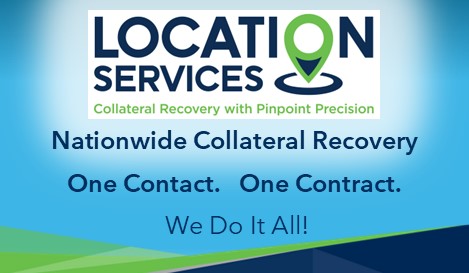
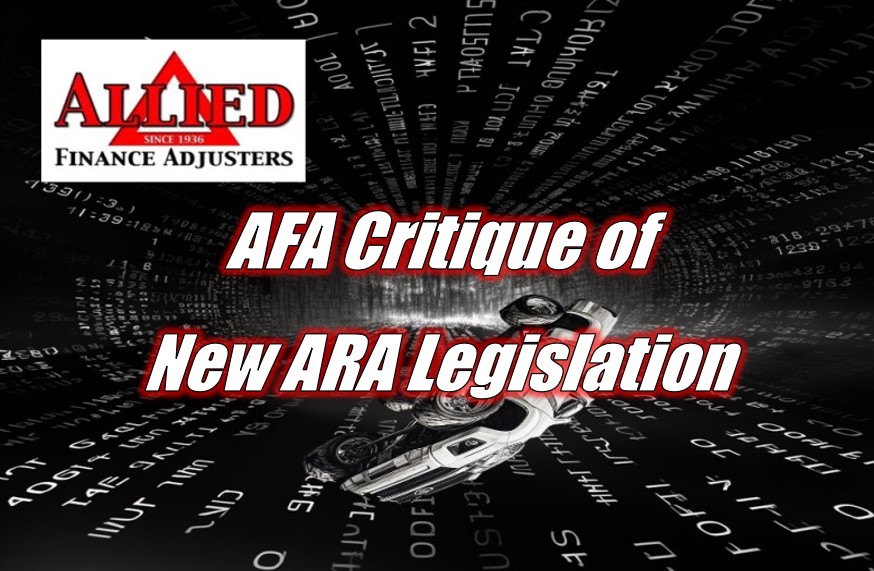
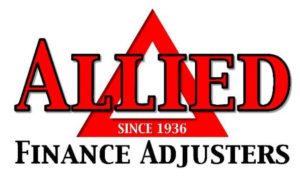




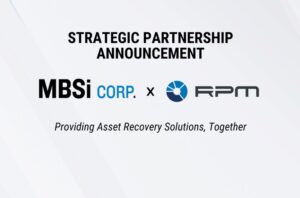
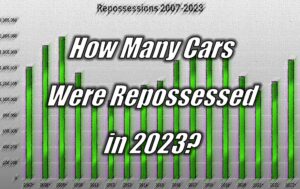


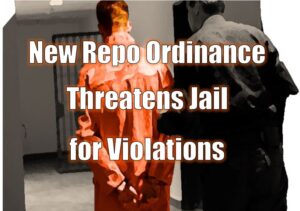
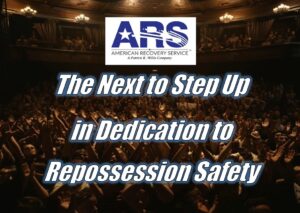

Facebook Comments